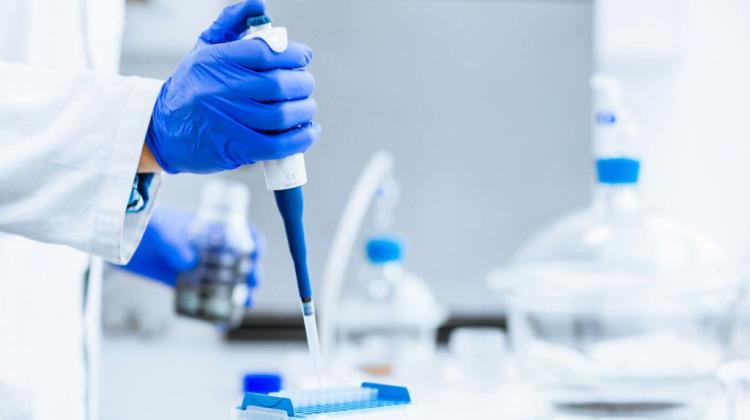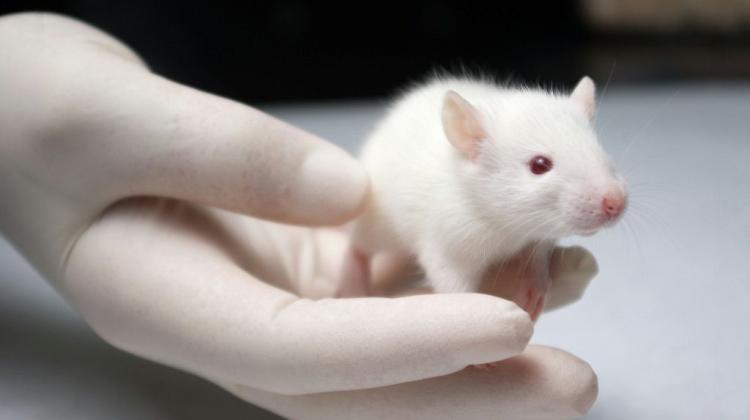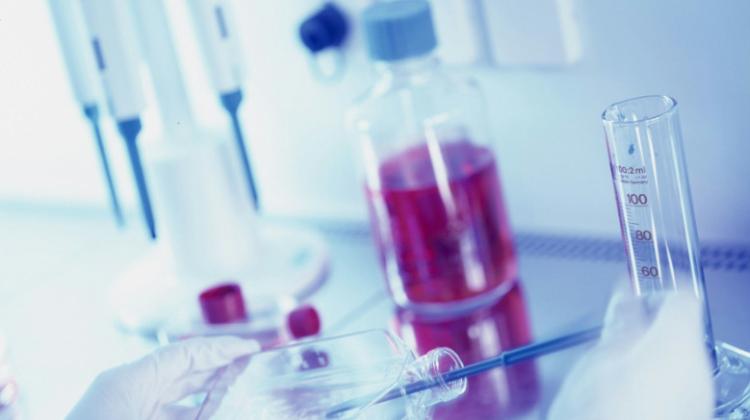Polish scientist studies the substance that will alleviate drug craving

Polish scientist studies the compound that can prevent an "amphetamine relapse". In the future, it can be used to produce a drug that relieves craving in abstainers and reduces the desire to reach for the drug again.
"Ability to withstand abstinence is very difficult, and sometimes painful. There are not many pharmacological options to help people who want to stay abstinent. Therefore, any help to alleviate craving would be welcome. We are working on a substance that inhibits the desire to reach for the drug again" - told PAP Joanna Miszkiel of the Institute of Pharmacology PAS in Kraków.
For her doctoral thesis Joanna Miszkiel investigates with the problem of amphetamine addiction. As she explains, amphetamines and cocaine are in the group of psychostimulants. Taking these substances induces the state of pleasure. This experience is the result of increased release of dopamine in the brain region called the reward system. Continuous or prolonged hyperactivity of this system this disturbs the balance of the neurotransmitters in the brain, which leads to addiction.
"The objective of my research is finding a potential drug against addiction to amphetamines, especially at the most critical stage - relapse" - described the researcher.
Young scientist investigates the role of one subtype of receptors located on neurons - the 5-HT1B receptor - in amphetamine addiction. Previous studies conducted worldwide have already shown that these receptors can prevent cocaine relapse. Scientists simply block these receptors with certain chemicals.
"We wanted to check whether the use of anti-relapse substances in relation to cocaine would also work for amphetamines. This is important, because addicts are usually addicted to more than one psychostimulant. Effective drugs to combat drug relapse should work for a larger group of substances - said Joanna Miszkiel. - My team has demonstrated that blocking this receptor also inhibits amphetamine relapse".
Certain compounds that act on the specific receptor also affect other receptors. "Our compound will only block the 5-HT1B receptor, which is why it is so effective" - the researcher told PAP.
In the future, the compound, properly processed and prepared in the form of tablets or injections, could help people who recover from drug addiction. "The process of introducing a drug to the market may take several years. We have only completed the first basic research, we are now carrying out studies on rodents. If we succeed here, the results are the same and we can cooperate with a pharmaceutical company, it will be possible to carry out further research" - emphasized the scientist.
At this stage it is difficult to say whether such substance could help in the fight against addiction to alcohol or cigarettes. "Each addiction is different. It is controlled by different mechanisms that respond differently to various substances" - noted Joanna Miszkiel.
The researcher has recently received a PhD scholarship in the amount of PLN 27 thousand in the "L\' Oréal Polska for Women in Science" programme. Minister of Science and Higher Education Barbara Kudrycka took the patronage of the programme.
PAP - Science and Scholarship in Poland, Ewelina Krajczyńska
ekr/ agt/ mrt/
tr. RL
Przed dodaniem komentarza prosimy o zapoznanie z Regulaminem forum serwisu Nauka w Polsce.


















